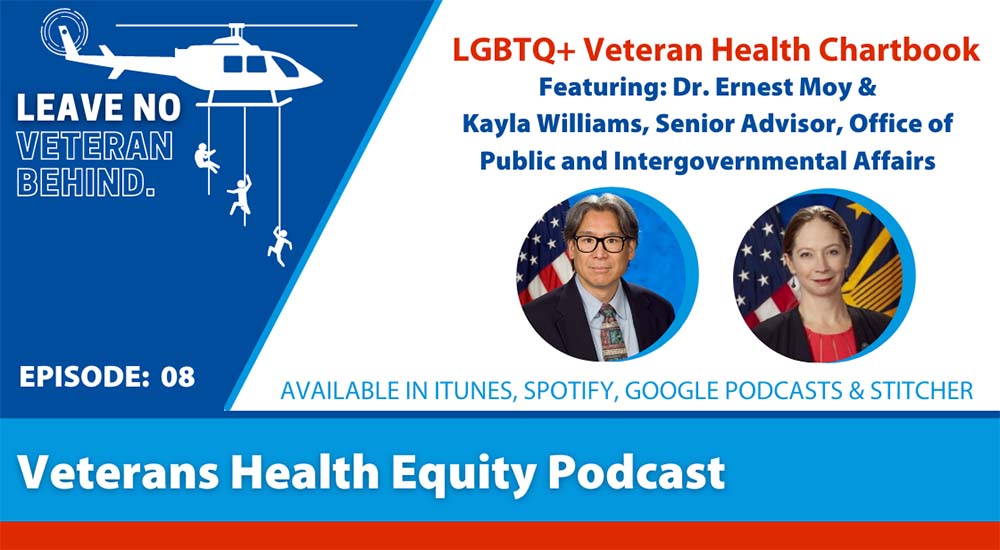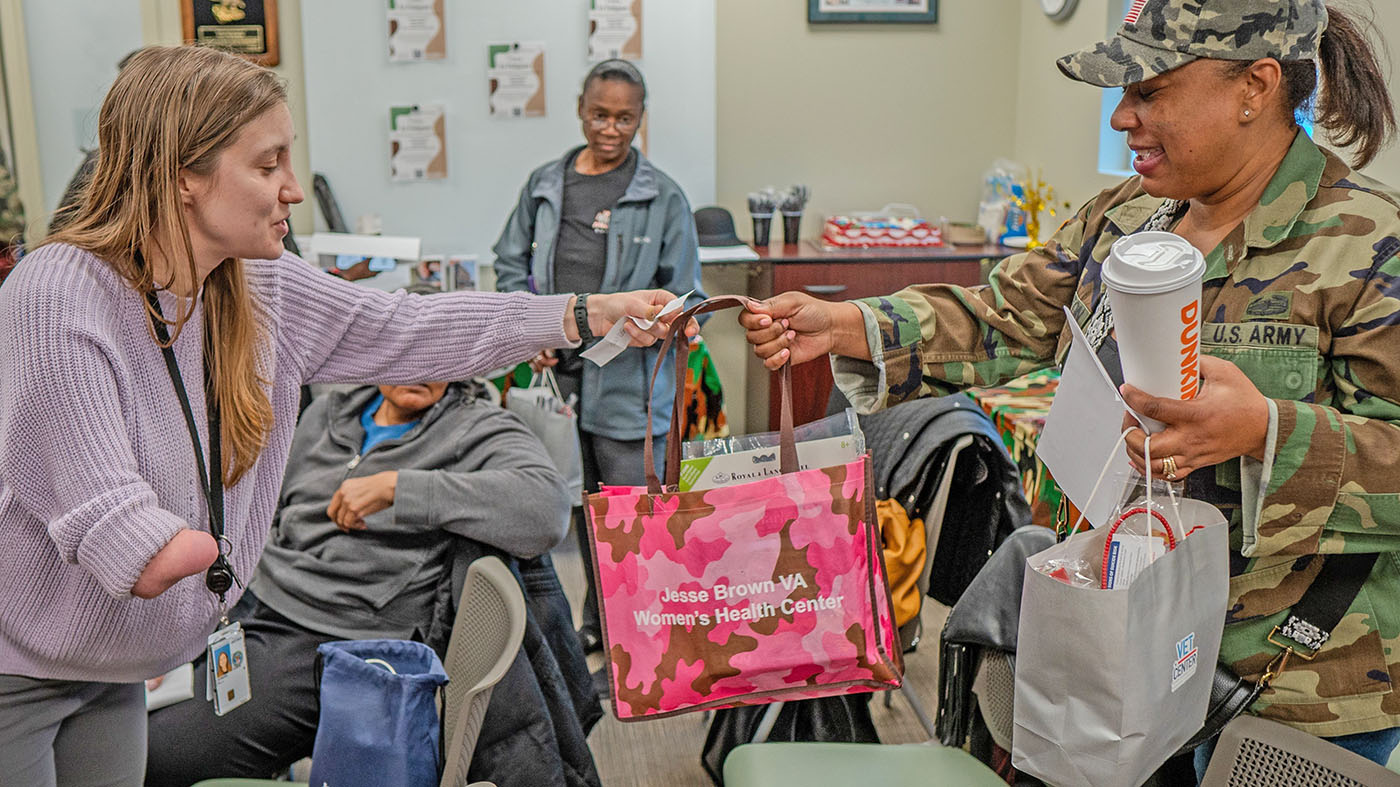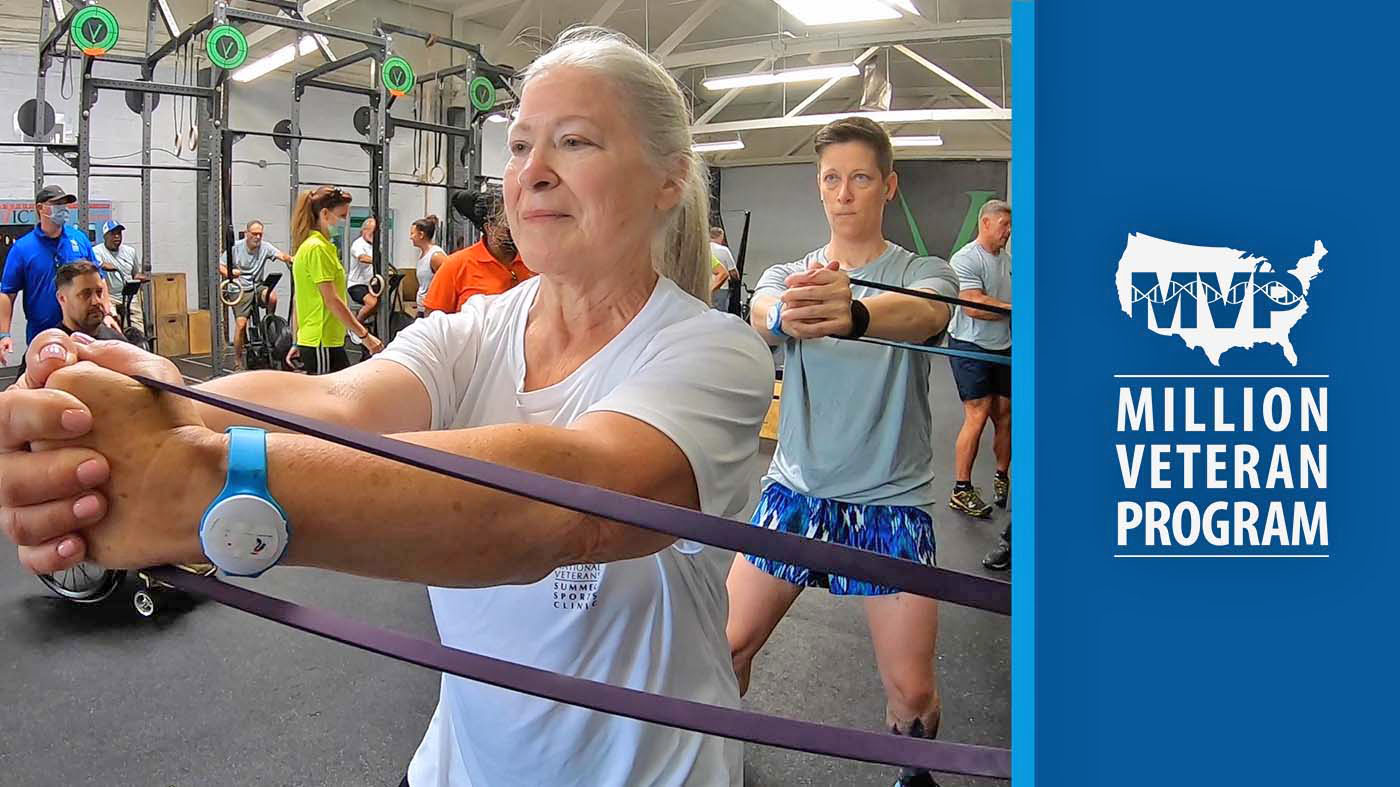In this chartbook, the term LGB refers to individuals who identified as lesbian, gay, or bisexual. The term non-LGB refers to individuals who identified themselves as “straight, that is not gay” in their responses to the survey. While the health of all LGBTQ+ Veterans is a priority for VA, this chartbook utilizes the 2013-2018 National Center for Health Statistics (NCHS) National Health Interview Survey (NHIS), which only has data available for a subset of the LGBTQ+ population.
The Office of Health Equity (OHE) champions the elimination of health disparities and achieving health equity for all Veterans, including LGBTQ+ Veterans. LGBTQ+ refers to lesbian, gay, bisexual, transgender, queer/questioning identities.
The ‘+’ sign also captures essences beyond LGBTQ, including pansexual, asexual, agender, gender diverse, nonbinary, gender-neutral and other identities.
LGB Veterans Health Chartbook explained
In this episode, Julia McGirr, fellow with the Office of Health Equity, is joined by Dr. Ernest Moy, executive director of OHE; and Kayla Williams, assistant secretary, Office of Public and Intergovernmental Affairs.
Moy summarizes the findings of the LGB Veteran Health Chartbook. Since VA does not currently collect data on the sexual orientation of Veterans, OHE partnered with the National Center for Health Statistics at the Centers for Disease control. This enabled them to use data they collected from national surveys on the health and health care of different Veterans groups.
This database also allows us to compare Veterans to non-Veterans and LGB Veterans to straight Veterans. The results showed that LGB Veterans had worse health status than straight Veterans and LGBTQ+ non-Veterans, especially in mental health and health-related behaviors.
Moy emphasizes that LGBTQ+ Veterans are not to blame for this disparity. It also demonstrated that military service harms LGBTQ+ individuals.
“Minority stress” could be a factor
Williams explains that “minority stress” could be a factor in the health disparity for LGB Veterans. Minority stress indicates that it’s not the LGBTQ+ status itself that is predictive of worse health outcomes but the impact of being systematically discriminated against.
She points to “Don’t Ask, Don’t Tell” as an example of the discrimination against LGBGTQ+ individuals in the military.
Civilian literature shows that LGBTQ+ individuals are at increased risk for poor health outcomes. The Department of Defense literature shows that LGBTQ+ troops are at similar risk.
Moy and Williams encourage VA health care providers to think about risk factors when providing care and be incredibly mindful of VA’s role in working with these individuals and not adding additional stress.
In closing, they describe why this data is essential and how it can be used to inform care at VA. Every Veteran deserves high-quality health care provided with dignity and respect.
Williams also outlines some of VA’s accomplishments in LGBTQ+ equality. She is proud to be a part of this change and expansion to reach and serve all Veterans equally.
Program information
We invite you to check out the Veterans Health Equity podcast web page on all your favorite places to listen to podcasts. Visit Patient Care Services website to learn more about Health Equity information, research, topics, training and more.
Topics in this story
More Stories
Chicago Vet Center and VA gave women Veterans information on VA services available to them.
MVP’s research informs personalized care for Veterans, supporting whole health and beyond.
More than 4,000 American Indian/Alaska Native Veterans have been approved for the copayment exemption and we're here to help you apply for yours, too.







“Health Equity” means preferential treatment for certain self-defined classes and groups. Not satisfied with equal treatment, they require catering.
So true. 11 O